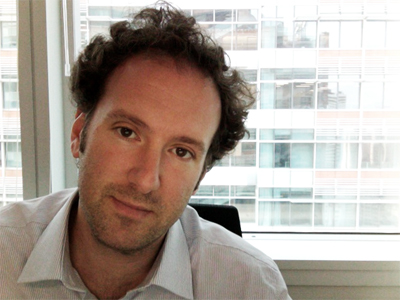Research and Teaching Staff of the School: Dr. Frederick Blumberg
By Nick Webber

~
Can you tell us a little bit about your background in the States?
As I grew up on Long Island, New York, so did my interest in literature. I then pursued a humanistic education at Amherst College, before going on to postgraduate degrees in law and in comparative literature. My education has taken me to several regions of the United States, from New England to the South to the West Coast.
How did you come to be in Hong Kong? Did you have any expectation of the city before you arrived? And do you feel at home here in the city?
During the last year of my doctoral studies, I applied for academic jobs and was offered a position here. I felt that I could contribute to the established strengths of the School of English (for instance, law and literature) while adding an early modern profile with new courses and research areas.
Having never been to Asia, before arriving in Hong Kong, I sought various kinds of information about the place and tried to imagine what it would be like; but all the photos and stories and facts, which created a vague vision of life here, could not provide the feel of even one hour’s experience.
Yes, I do feel at home in Hong Kong. This is evident in how I no longer notice many things that were puzzling or surprising upon first encounter. And when I return from abroad, I look forward to seeing the now-familiar streets.
I see that you used to work as a lawyer; what were the reasons behind leaving that profession to become an academic? And how do you think the former might influence the latter?
I entered law because of my interest in practical, if provisional, resolutions to knotty philosophical problems. Law, which often involves the construction of arguments by means of telling stories, seemed to be an extension of my background in philosophy and narratology. I left the practice of law simply because I felt that literary scholarship suited me better—my temperament, ability, and interest. Still, legal experience informs and enriches my literary research considerably: my central academic focus is the institutional regulation of literature and the literary critique of authority.
Can you tell us a little about your current research?
I am working on several projects, including an article on the Renaissance concept of the institution and a book based on my dissertation that concerns ideas about poetic language that drive ecclesiastical censorship during the Counter-Reformation.
Having completed your Ph.D. at Stanford in California, how does HKU compare?
Both universities are exciting places to be. I developed a lot, intellectually and personally, while at Stanford thanks to the wonderful people who helped me along, from fellow postgraduates to the stellar professors under whom I studied.
Now, as a professor at HKU, I have the opportunity to emulate (in my own style) the pedagogic and advisory models I was fortunate enough to see in action. In the classroom, students at HKU are more reticent than those at Stanford; but I do my best to engender lively discussion. The ability to articulate oneself orally is an essential part of literary study and good training for any professional endeavor upon which students eventually embark.
You teach courses on Shakespeare, early modern language ideology and experimental prose—all of which are challenging subjects, particularly for students with English as a second language. How have you found teaching these courses at HKU?
I have enjoyed teaching at HKU a great deal. I recognize that, even for native speakers, engaging with the language and culture of the English Renaissance requires patience and determination. I hope to inspire students to make the effort to read with concentration and sensitivity because the benefits are invaluable: intellectual pleasure and insight into human life. Whether English is the student’s first or second language, what matters is the desire to learn, openness to the importance of ideas, and genuine care about stimulating expression.
Outside of your academic work life, what do you enjoy doing in your spare time?
Walking in cities; going to open-air markets; listening to enlivening music; cooking; playing tennis; and, yes, reading more literature.

Our apologies, you must be logged in to post a comment.